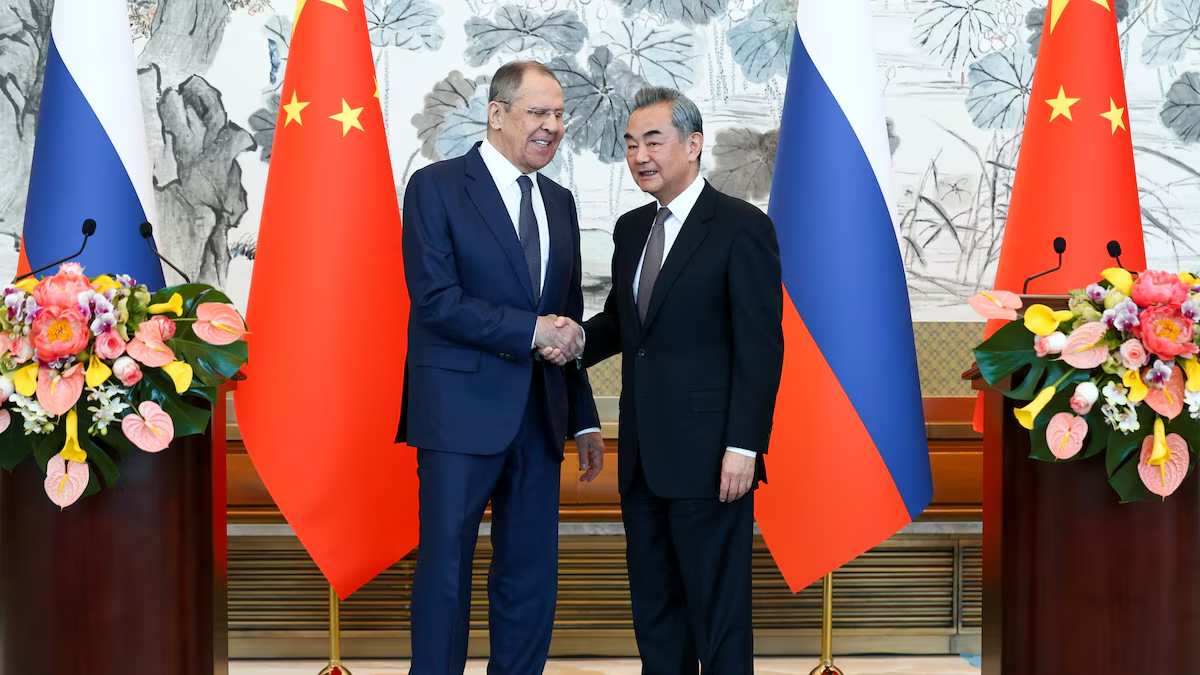Beijing, April 8, 2024 — Russian Foreign Minister Sergey Lavrov arrived in Beijing today, emphasizing the robust diplomatic partnership between Russia and China. His visit comes amidst Moscow’s ongoing conflict with Ukraine and a concerted effort to align foreign policies against the United States and its allies.
Strengthening Ties Amidst Global Geopolitical Shifts
Lavrov’s visit underscores the strategic coordination between two continent-sized authoritarian states. Both Russia and China seek to expand their influence across Africa, the Middle East, and South America, challenging democracies and NATO. As tensions escalate, they aim to consolidate their positions on the global stage.
Key Discussion Points
During his visit, Lavrov is expected to engage in discussions with his Chinese counterpart, Foreign Minister Wang Yi. The agenda includes:
- Ukraine Crisis: Lavrov and Wang Yi will address the situation in Ukraine, where Russia has been engaged in a grinding war. China, while supporting Russia’s stance, refrains from labeling it as an invasion.
- Asia-Pacific Region: The ministers will explore regional dynamics, emphasizing cooperation and interaction.
- Bilateral Cooperation: Russia and China will discuss ways to enhance bilateral ties across various sectors.
- International Arena: Both nations aim to coordinate their positions on global issues, challenging the dominance of Western democracies.
China’s Stance
China maintains an objective and fair position on the Ukraine crisis. While backing Russia’s claim of Western provocations, China actively promotes peace talks and political solutions. The Chinese Foreign Ministry spokeswoman, Mao Ning, emphasized that China is not a creator or party to the crisis and will not profit from it. Despite their alignment with Russia, China denies providing military assistance and remains committed to economic ties.
A “No Limits” Relationship
Lavrov’s visit echoes the 2022 pact signed during President Vladimir Putin’s visit to Beijing for the Winter Olympics. The pact pledged a “no limits” relationship, with China supporting Russia’s position while advocating for peaceful dialogue.
As Lavrov meets with Chinese President Xi Jinping, the world watches closely. Their handshake symbolizes the strength of China-Russia ties in an ever-shifting geopolitical landscape.
China and Russia: Exploring Ties Between Two Authoritarian Powers
Introduction
China and Russia share a long and intricate history, marked by periods of both cooperation and fierce strategic rivalry. These neighboring nations have strengthened their ties over the past decade, but experts question the depth of their strategic partnership. While their alignment is driven more by their common rivalry with the United States than by any natural affinity, their relationship remains multifaceted.
Historical Context
The China-Russia relationship has not always been smooth. Disputes have arisen over communist doctrine and their extensive 2,600-mile shared border. However, since the turn of the twenty-first century, significant improvements have occurred. The two countries resolved their border dispute, engaged in joint military drills, and deepened economic cooperation.
Military and Security Cooperation
China and Russia are not formal allies, yet their emerging strategic partnership has caused concern in Washington. Their cooperation is driven by a desire to curb American power and challenge U.S. hegemony. While joint security exercises have increased, the two militaries still lack interoperability.
Economic Ties
Amid Western sanctions against Russia, Moscow has shifted trade away from Europe, leading to a blossoming economic relationship with China. However, this relationship remains highly asymmetrical.
Diplomatic Coordination
China and Russia coordinate within international institutions to challenge the norms of the U.S.-led world order. Despite their differences in vision, they work together strategically.
Summary
After a long history of disputes, China and Russia have expanded their military, economic, and diplomatic relations in the twenty-first century. Although their ties have substantially increased, they are not natural partners or formal allies. Beijing and Moscow’s cooperation is driven by their desire to curb American power and challenge U.S. hegemony, even amidst ongoing challenges to their relationship.
In essence, the China-Russia relationship is a delicate balance of shared interests and underlying complexities.
By Suresh Kumar, reporting from Beijing
References:

